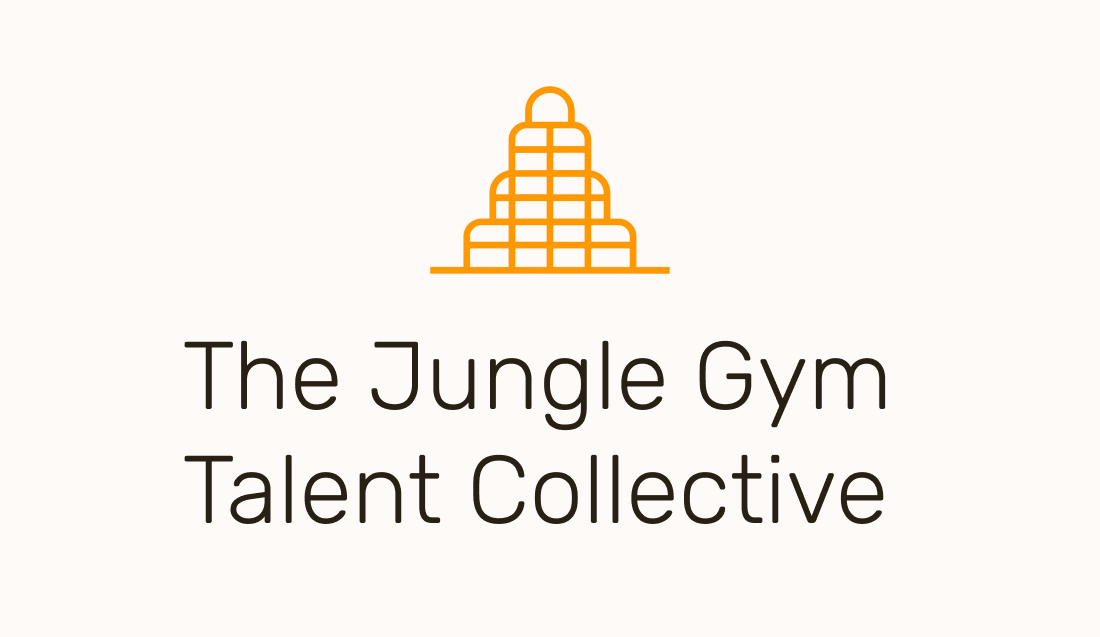👋 Welcome to the latest issue of The Jungle Gym – the newsletter that helps you build a more fulfilling career by integrating your work and life.
✨ If you’re a new reader, thanks for stopping by. Feel free to check out this introductory post, which explains what The Jungle Gym is all about.
📬 To get future issues delivered to your inbox, enter your email here:
“What do you want to be when you grow up?”
If you’re like me, you heard this question a lot as a kid.
I found my answer in the Summer of 1996 when my parents took me to see Independence Day.
Remember that scene when the alien ship blows up the White House? That was the moment I decided that I wanted to write movies.
Fifteen years later, I moved to LA to pursue my goal of becoming a screenwriter. The only problem – it was completely wrong for me.
It turned out that working in the reality of working in entertainment had little in common with the magic of a movie theater. Since it’s hard to make money as a junior screenwriter I found a job as a production assistant. That meant very little writing, during the day, and a lot of fetching coffee for sociopaths.
While my screenwriting career got some decent traction that first year, I didn’t like the solitude of the writer’s life or the slow process of paying dues. I couldn’t shake the feeling that I had picked the wrong occupation.
Reflecting on what went wrong, I see that “what I wanted to be” was the wrong question. Before picking a profession, I needed to decide whether I cared more about having millions of dollars in my sixties or hours of unstructured time in my forties. I needed to prioritize earning status among my peers versus pursuing my intellectual interests.
Instead of deciding what I wanted to be, I needed to figure out why I wanted to work in the first place.
I needed to decide what game I wanted to play.
Infinite Games at Work
“There are at least two kinds of games. One could be called finite, the other infinite. A finite game is played for the purpose of winning, an infinite game for the purpose of continuing to play.”
– James P. Carse, Author of Finite and Infinite Games
Fulfilling careers are built around infinite games. Whether it’s the pursuit of wealth or the drive to solve intractable problems, we all need goals to motivate our choices. But the satisfaction of achievement is fleeting. Ultimately, a career well-spent is one that provides meaning throughout the journey.
Unfortunately, no one tells us which games we can choose from. So, instead of making an informed choice about how to allocate our working hours, we stumble into a profession that sounds interesting.
Fortunately, no matter how you’ve spent your career thus far, you can still make better choices about how to spend your remaining hours at work.
Below are nine examples of infinite games that can guide your career choices. Each offers its own measure of success.
1. Wealth 💰
One alluring aspect of the wealth game is that money can be exchanged directly or indirectly for so many other valuable things. This fungibility allows the wealthy to buy their way into winning positions in other games.
Aligned professions: Hedge Fund Manager, Investment Banker, Entrepreneur
2. Power 💪
While wealth can buy mansions and yachts, power can seize those assets with the stroke of a pen. Those who amass real power gain the ability to influence the actions and beliefs of others to create the outcomes they wish to see in the world.
Aligned Professions: Executive, Politician, Police Officer
3. Relationships 🤝
Forming strong bonds with others can be a shortcut to getting ahead in other games. For example, befriending a powerful person can be just as beneficial as building a power base of your own.
Aligned Professions: Celebrity, Therapist, Talent Agent
4. Performance ⚙️
Whether it’s quota attainment or running speed, measuring your career based on performance gives you objective metrics to evaluate your own growth.
Aligned Professions: Athlete, Salesperson, Military
5. Mastery 🎨
While performance is about outcomes, the pursuit of mastery is all about honing your craft. This process is often accompanied by an intrinsic motivation that makes work feel like play.
Aligned Professions: Chef, Designer, Surgeon
6. Discovery 🔎
The discovery process fulfills our innate desire to understand the world and expand the limits of human understanding.
Aligned Professions: Researcher, Inventor, Academic
7. Autonomy 🕊
Time is our most precious resource. Those who gain autonomy earn freedom over how to spend their valuable hours.
Aligned Professions: Solopreneur, Creator, Independent Consultant
8. Energy ⚡
Energy provides the lens that colors our day-to-day experiences. By maximizing our positive energy, we can make the best use of our limited time on earth.
Aligned Professions: Motivational Speaker, Religious Leader, Personal Trainer
9. Impact 🚀
Those who optimize for impact get the chance to leave a legacy that will echo long after they are gone.
Aligned Professions: Teacher, Advocate, Non-profit leader
You don’t have to choose a single game to orient your career. You are more than welcome to mix and match them, and even select options that don’t appear on this list.
What’s important is that you recognize that there are lots of legitimate options for how to direct your career. And if you aren’t enjoying the game you’re playing today, you still have plenty of time to start a new one.
Stackable Games
As I’ve been rethinking my own game, I’ve found it helpful to visualize each of the options above as lego pieces that can be staked to build something unique.
For me, It all starts with energy.
Because I view time as my most valuable resource, I aspire to make the most out of my limited hours by maximizing the energy I’m feeling at each moment. This goal tends to direct me toward the right professional projects and ensures that I can show up in a positive way for the important people in my life.
When I think about what gives me energy, it’s doing creative work with people who make me laugh and feed my curiosity. Without meaningful relationships, I can’t win the energy game. That’s why I make a lot of career choices based on who I’ll be collaborating with.
In order to pursue creative work with people who give me energy, it helps to have autonomy over how I spend my time. That doesn’t mean I abdicate commitments. Rather, I want the freedom to choose the commitments that energize me.
Of course, autonomy isn’t free. To preserve it, I need to maintain a certain level of wealth. Not yacht wealth or Summer home in the Hamptons wealth, but I do need enough that the people who depend on me have the autonomy to live lives that energize them as well.
If you’re compelled by this method and want to try it for yourself, here’s how you can build your own game.
1. Determine your ends
Figure out the thing you desire as an end in itself. Some people view wealth as a means to impress people. Others want to impress people as a means to gain wealth. By discovering the thing you want for its own sake, you’ll have a great north star to orient your career.
2. Ask yourself what you need to get it
Let’s say view impact as an end in itself. What do you need in order to create that impact? Perhaps it’s the power to influence the masses. Maybe it’s mastery over a specific set of skills. Each time you identify the most important thing, as yourself what you need in order to get it.
3. Make sure the order is right
The order of these values is important. In my own example, energy comes before wealth. That tells me not to accept a high-paying job that will deplete my energy. Likewise, I know that if I pursue autonomy to the point that I ruin important relationships, I will also end up losing my own game.
Once you’ve thoughtfully designed your own game, it becomes much easier to select opportunities to pursue, and which ones to avoid.
Playing the Metagame
While your game may feel right for the moment, it’s unlikely to be the final product. Your priorities will shift with the seasons of life and the game you play may need to change as well.
The best way to think about the process of defining your game is as an infinite game of its own. It’s not a game you play to win but one where the purpose is continuing to play.
The Talent Collective is growing fast. We’ve now got a list of over 250 candidates at all levels and functions who we are actively matching to fast-growing startups like:
Zapier
Shopify
On Deck
I’ve been doing coaching calls with a ton of our candidates last week and have been blown away by the aptitude and experience of the people I talked to.
If you’re a company that’s hiring, tell us what roles you are looking to fill and we’ll set you up with monthly talent drops of candidates that match your open recs.
If you’re a candidate who’s exploring new opportunities just share your info once and start getting intro requests from fast-growing startups delivered right to your inbox.
Questions? Feel free to drop me a note.
If you enjoyed this issue of the newsletter, I'd really appreciate it if you could forward it to a friend, family member, or colleague who you think might like it too.
Or, if you'd like to share it on one of your social networks, that’s always great as well.
Until next time,
Thanks to those who provided feedback on early drafts like: Ashley deWilde, David Sherry, Josh Constine, Justin Mares, and Paul Millerd.











This was an interesting exercise. You’re so right that when we are young we choose professions based on some idea of what we want, only to realize that that idea is better served elsewhere!
I wanted to be a Broadway actress. But it’s because I’m after “mastery” of a craft. Once I took a look at the craft I could devote my life to and master, writing was a much better fit!
And “autonomy” (so that I have the time/freedom to write) and then “wealth” (so that my basic needs are always taken care of and I can devote myself to writing) are the natural building blocks that allow me to pursue mastery.
My life is definitely set up that way now. And I loved thinking about my career this way. Thank you!
Hi Nick, great insights! In addition to focusing on the why, I think another important side is simply what you like to do. It sounds like you wanted to BE a screenwriter, but didn't necessarily like DOING the day-to-day tasks of a screenwriter. To put it a different way - you might want to be a chef, and being a chef might align with your values, but if you don't like cooking it probably won't work out for you. Maybe sometimes "what do I like to do?" is a more helpful question than "what do I want to be?"